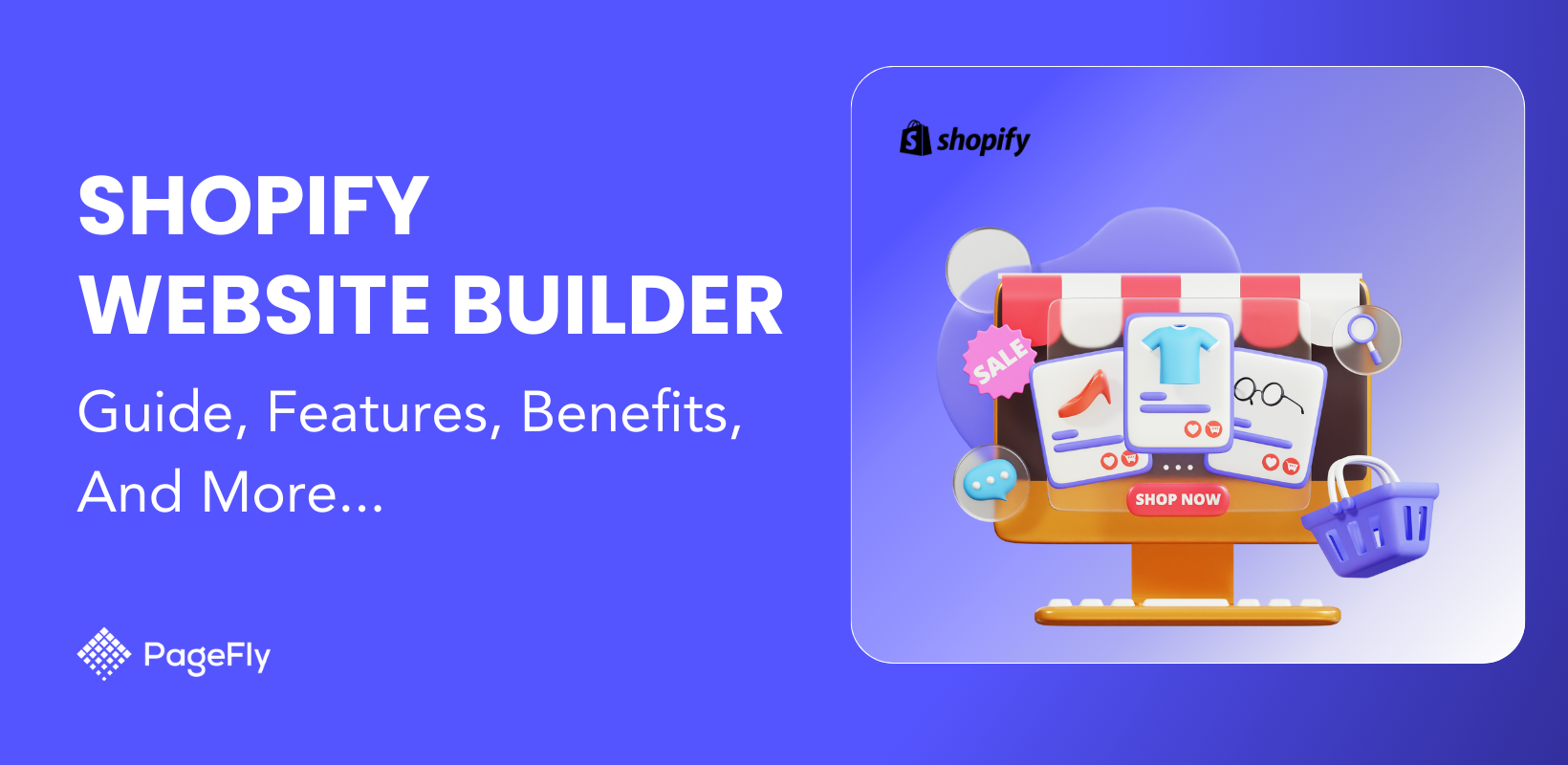Selecting the right platform can make or break your business. With various options available, two names are consistently being compared — Shopify vs Magento. Both platforms offer solutions tailored for growing businesses, but which one is the right fit for you? Both Magento and Shopify cater to different business needs, with Magento offering more complex functionalities and customizability, while Shopify is user-friendly and accessible for those with simpler e-commerce requirements.
When contemplating an eCommerce platform, many entrepreneurs ask themselves questions: “What are the specific needs of my business?” “Am I looking for ease of use or extensive customization?” “How scalable is the platform as my business grows?”
Additionally, considerations such as budget constraints, the technical expertise of the team, and the desired level of customer support often come into play. Shopify is known for its user-friendly interface and quick setup, making it appealing for those new to eCommerce. In contrast, Magento provides a high degree of flexibility and customization, ideal for businesses with unique requirements and the resources to manage a more complex system. Understanding these factors will guide readers in evaluating which platform aligns best with their business goals.
Magento vs. Shopify: Key Definitions
Shopify

Source: Shopify
Shopify caters to different businesses and merchants, providing a seamless and scalable eCommerce solution.
- Scalability: Efficiently manages high traffic volumes, crucial during peak sales periods.
- Multi-Channel Integration: Connects with social media platforms and online marketplaces for expanded reach.
- Custom Development: Offers a strong API for building custom apps and integrations.
- Security: Provides advanced security features and PCI compliance for safe transactions.
- Analytics and Reporting: Robust tools for analyzing performance and optimizing sales strategies.
- Support: 24/7 customer support with dedicated account management.
Magento

Source: Adobe
Magento, now known as Adobe Commerce, is a feature-rich ecommerce platform that offers unparalleled flexibility and robust capabilities for businesses.
- Flexibility: Modular design enables extensive customization and functionality adjustments.
- Scalability: Designed for high-volume transactions and large-scale operations.
- Integrations: Supports seamless connections with various third-party applications.
- Personalization: Advanced tools for customer segmentation, marketing automation, and personalized experiences.
- Security: Includes two-factor authentication, data encryption, and PCI compliance for transaction security.
- Analytics: Comprehensive reporting tools for tracking performance, managing inventory, and understanding customer behavior.
Pricing
Shopify

Source: Shopify
- Basic Shopify Plan ($19): Best for new e-commerce businesses with occasional in-person sales.
- Shopify ($49): Ideal for growing businesses that require advanced reporting.
- Advanced Shopify ($299): Suitable for scaling businesses that need advanced reporting and more staff accounts.
- Plus ($2,300): More appropriate for more complex businesses and high-volume merchants.
Magento (Adobe Commerce)

Source: Adobe Commerce
- Under $1,000,000 Gross Sales Revenue:
- Cost: $22,000/year
- Features: Basic access to Magento Commerce features tailored for smaller businesses.
- $1,000,000 – $5,000,000 Gross Sales Revenue:
- Cost: $32,000/year
- Features: Additional features and support for businesses with moderate sales volume.
- $5,000,000 – $10,000,000 Gross Sales Revenue:
- Cost: $49,000/year
- Features: Enhanced features and scalability for growing businesses.
- $10,000,000 – $25,000,000 Gross Sales Revenue:
- Cost: $75,000/year
- Features: Comprehensive features and support for high-volume businesses.
- $25,000,000+ Gross Sales Revenue:
- Cost: $125,000/year
- Features: Premium features and services for very large enterprises.
Note that you can also inquire about customized pricing.
Design and Customization
Themes and Templates
Shopify: Shopify offers a wide range of professionally designed themes that cater to diverse industries, ensuring that businesses can find a design that resonates with their brand identity. These themes are responsive, meaning they adapt seamlessly to any screen size, enhancing the user experience across devices. With an intuitive drag-and-drop interface, Shopify theme customization allows users to customize the layout, colors, and fonts without needing extensive coding knowledge.

Source: Shopify Themes
For example, the Shine theme, available on the Shopify Theme Store, offers online retailers exceptional flexibility and customization options. Its innovative modular design allows you to easily combine various sections, blocks, and elements to craft a distinctive and well-organized online presence. With the Shine theme, you can create a website that perfectly aligns with your vision and meets the unique needs of your target audience.
Magento: Magento provides an extensive library of themes and templates, allowing businesses to create highly customized storefronts. The platform's architecture enables developers to build unique themes that can incorporate specific functionalities tailored to their target market. This flexibility means that businesses with complex needs, such as advanced product filtering or bespoke check-out processes, can achieve their desired user experience.

Source: Adobe
For instance, a clothing retailer could implement a custom theme that reflects its brand ethos, complete with unique navigation features and integrated lifestyle imagery. Furthermore, Magento's template engine empowers developers to craft a bespoke front end that can align closely with ongoing marketing campaigns, ensuring that the website’s design remains fresh and relevant to consumer trends.

Customization Options
Shopify: While Shopify is celebrated for its ease of use, enabling businesses to make quick design tweaks through its intuitive interface, the platform also supports advanced customizations for those who wish to enhance their online presence further. Written in Ruby, Liquid is an open-source template language developed by Shopify. It serves as the foundation for Shopify themes and loads dynamic content onto storefronts.
Users can leverage Shopify's Liquid templating language, which allows developers to create unique layouts, manage dynamic content, and build custom themes tailored to specific user needs.
Additionally, Shopify Plus offers access to the Shopify App Store, where merchants can find plugins to extend functionality—ranging from advanced analytics tools to marketing automation solutions—further streamlining their operations.
Magento: Developers can exercise complete artistic and functional autonomy to construct solutions that align perfectly with their business goals. The platform supports custom modules, allowing businesses to create tailored features, workflows, and user experiences designed to meet specific audience demands.
With its high degree of customizability, Magento Enterprise is an optimal choice for businesses that aim to distinguish themselves in a competitive market by offering unique shopping experiences tailored to their customers' preferences.
Marketing and Sales
Sales Tools
Shopify: Beyond basic sales functionalities, Shopify enhanced e-commerce strategies through its suite of tools designed to increase conversion rates and improve customer engagement. These sales tools are essential for managing an online business effectively. The platform’s product bundling feature allows merchants to create enticing offers by grouping complementary items, encouraging customers to buy more while enjoying savings.
Automated discounts can be configured based on various criteria, such as customer segments or purchase history, making personalized promotions effortless to manage. Shopify boasts seamless integration with popular social media platforms, enabling businesses to run effective commerce campaigns directly on channels like Facebook and Instagram. This capability extends to marketplaces, allowing sellers to reach a broader audience with minimal effort.
Magento: On the other hand, Magento provides sophisticated sales tools that lend themselves to complex promotional strategies. Its advanced promotions engine gives merchants the ability to create custom discount rules that can cater to specific customer behaviors or market conditions, greatly enhancing sales efficiency. This level of customization allows for the execution of tiered discounts, customer loyalty programs, and time-sensitive promotions designed to create urgency.
Moreover, Magento’s B2B capabilities enable wholesale businesses to implement features such as negotiated pricing and bulk purchase discounts, allowing for tailored solutions that meet the specific needs of corporate clients. This added layer of functionality empowers companies to manage their sales processes more effectively, driving increased revenue both online and in-person.
Reports and Analysis
Reports and analysis provide entrepreneurs with detailed insights into sales trends, customer acquisition costs, and product performance via an intuitive dashboard.

Source: Unsplash
Shopify: Users can effortlessly track sales trends, customer acquisition costs, and product performance through an intuitive dashboard. The platform's reporting capabilities allow for segmentation analysis, helping merchants identify their most valuable customer segments and tailor marketing efforts accordingly.
Shopify's integration with Google Analytics enriches this analytical experience by providing advanced tracking options, such as monitoring funnel conversions and setting specific goals. This combination of intuitive reporting and integration with powerful external tools equips merchants with the knowledge to refine their strategies and optimize overall performance.
Magento: With over 100 predefined reports available, merchants can obtain insights into sales performance, customer behaviors, inventory levels, and product trends with ease. The platform's ability to create custom reports allows businesses to address their unique operational needs, enabling users to drill down into specific metrics that matter most.
Moreover, Magento's analytics can also support forecasting by analyzing historical data, helping businesses to plan inventory and marketing strategies more effectively. The platform also facilitates data visualization, enabling users to transform raw data into meaningful charts and graphs, making it easier to communicate performance insights to stakeholders. With these reporting and analysis tools, Magento enables businesses to drive growth through informed strategies.
Payment and Shipping
Shopify: By integrating with Shopify Payments, merchants can benefit from reduced transaction fees, which can lead to higher profit margins on sales. The platform supports popular payment solutions like PayPal and Stripe, providing customers with secure and convenient options for completing their purchases.
Additionally, Shopify includes web hosting within its subscription plans, alleviating concerns about security and domain purchases, while Magento requires separate handling for web hosting costs.
Shopify Plus simplifies the checkout process, enhancing the user experience by offering features like one-click checkout and mobile-friendly payment options. This flexibility not only boosts conversion rates but also fosters customer loyalty by accommodating their preferred payment methods.
Magento: It supports well-known options like Authorize.net, Braintree, and many regional gateways, enabling merchants to operate globally while offering local payment methods. Magento’s payment processing capabilities are designed to ensure secure transactions, minimizing the risk of fraud and instilling consumer confidence.
The platform also allows for advanced configurations such as direct API integrations and customizable payment workflows, empowering businesses to tailor the payment experience based on their unique operational requirements. This level of customisation ensures that merchants can create a seamless and efficient payment process that meets both their and their customers’ needs.
Shipping Providers
Shopify Plus: In addition to its integrations with UPS, FedEx, and DHL, Shopify further enhances shipping efficiency by offering features such as real-time shipping rates, which allow customers to see accurate shipping costs at checkout. This transparency helps to reduce cart abandonment rates and improve customer satisfaction.
Shopify provides tools for order tracking and automated notifications, ensuring that customers remain informed about their shipment status. The platform also supports international shipping, enabling merchants to reach a global audience while simplifying the complexities of cross-border logistics. With the inclusion of discounted shipping rates, Shopify empowers businesses to optimize their shipping strategies and reduce overall costs.
Magento: With the ability to connect with multiple shipping carriers, merchants can leverage competitive shipping rates while maintaining flexibility in their logistics operations. Moreover, Magento allows for the creation of custom shipping rules, allowing businesses to implement advanced strategies based on factors such as order weight, destination, or customer groups.
The platform also supports features like multi-shipping options, which accommodate customers wishing to send items to different addresses in a single order. With these capabilities, Magento Enterprise empowers merchants to streamline their fulfillment processes while providing a tailored shipping experience that enhances customer satisfaction.
Security and Support
Shopify: Beyond its foundational security measures, Shopify employs advanced fraud detection systems to monitor transactions continuously and quickly identify any suspicious activity. It offers two-factor authentication (2FA) for account access, providing an extra layer of protection against unauthorized access. The platform also maintains regular security assessments and penetration tests to identify vulnerabilities, ensuring that security protocols evolve to meet emerging threats.
Magento: Magento Enterprise enhances its security framework through a set of features, including role-based access control that restricts user permissions and minimizes the risk of internal breaches. The platform provides additional tools for managing security incidents, such as logging and monitoring capabilities that allow merchants to track changes and access patterns effectively.
Magento's commitment to ongoing security updates ensures that merchants have immediate access to the latest protective measures against evolving cyber threats. By integrating with various third-party security extensions, Magento allows businesses to customize their security environment according to their unique needs, further solidifying their defenses against potential attacks.

Customer Support
Shopify: Merchants can benefit from a dedicated account manager who acts as a strategic partner. This ensures that businesses have direct access to expert guidance for optimizing their store performance and navigating the challenges of e-commerce. The platform's 24/7 priority support means that merchants can resolve issues quickly, minimizing downtime and enabling a smooth operational flow.
Shopify also provides a knowledge base filled with tutorials, troubleshooting tips, and best practices, while community forums offer a platform for merchants to share experiences and seek advice from fellow users.
Magento: With 24/7 access to support teams, merchants can receive assistance at any time, ensuring their concerns are addressed promptly. Magento also provides dedicated account management, allowing businesses to benefit from customized support that aligns with their specific operational requirements.
The wealth of documentation offered by Adobe Commerce includes extensive technical guides and resources, empowering merchants to resolve issues on their own if they choose. The active community surrounding Magento also facilitates knowledge-sharing, where users can connect and collaborate, enhancing their overall e-commerce experience.
Apps and Extensions
Both Shopify and Magento offer expansive app ecosystems that enable merchants to extend the functionality of their e-commerce platforms. These apps play a critical role in enhancing user experience, automating processes, and integrating with various third-party services.

Source: Shopify App Store
Shopify App Store: The Shopify App Store is intuitive and user-friendly, featuring thousands of apps designed to facilitate marketing efforts, improve customer engagement, and streamline operations. From SEO optimization tools to customer loyalty programs, Shopify apps address a myriad of business needs. Additionally, many of these apps can be seamlessly integrated with the Shopify platform, allowing for quick installation and minimal disruption to existing workflows.

Source: Adobe Commerce Marketplace
Magento Marketplace: The Magento Marketplace boasts a diverse range of extensions that allow merchants to tailor their stores to specific requirements. These extensions include features for payment processing, social media integration, and advanced analytics, among others. Magento’s flexibility in customization makes it ideal for businesses seeking bespoke solutions. Moreover, developers can create custom extensions to enhance functionality, ensuring that Magento remains adaptable to the evolving needs of merchants.
Shopify vs. Magento: Other Features
Shopify is known for its ease of use and extensive built-in tools that streamline the eCommerce experience. Magento, on the other hand, excels in offering advanced customization and flexibility, catering to businesses with specific requirements and high scalability needs.

Source: Unsplash
Shopify
User-Friendly Interface:
- Designed for ease of use, even for non-technical users.
- Drag-and-drop store builder.
Hosting Services:
- Fully hosted platform meaning you don't need to worry about server management.
Customer Support:
- 24/7 customer support through live chat, email, and phone.
Magento
Flexibility and Customization:
- Open-source platform offering extensive customization options.
- Requires more technical knowledge to set up and manage.
Self-Hosting:
- Users are responsible for their own hosting services.
Community Support:
- Strong user community but limited direct support unless using Magento Enterprise.
Use Cases
Use Cases describe the specific scenarios or types of businesses that benefit most from each platform.

Source: Unsplash
Shopify
Small to Medium-Sized Businesses:
- Ideal for entrepreneurs and SMEs looking for a hassle-free setup.
- Suitable for businesses without technical expertise.
Quick Launch:
- Perfect for those who want to get started quickly with minimal setup.
Magento
Large Enterprises:
- Best suited for large businesses with dedicated IT teams.
- Ideal for stores requiring highly customized features.
Complex Requirements:
- Suitable for businesses needing extensive customization and scalability.
Shopify Plus vs. Magento Enterprise
Shopify Plus

Source: Shopify
Features:
- Scalability to handle large volumes of transactions.
- Priority customer support.
- Enhanced API calls and advanced automation tools.
Magento Enterprise (Adobe Commerce)

Source: Adobe Commerce
Features:
- Advanced B2B functionality.
- Robust security features.
- Customizable to a granular level, making it suitable for highly specialized needs.
Verdict: Top Performer Across Key E-Commerce Criteria
Scalability:
- Magento: Magento excels in scalability, making it ideal for large enterprises and high-volume operations. Its modular design and robust architecture allow it to handle large traffic volumes and high transaction rates efficiently.
- Winner: Magento
Multi-Channel Integration:
- Shopify: Shopify offers strong multi-channel integration capabilities, connecting seamlessly with social media platforms and online marketplaces, which helps businesses expand their reach effortlessly.
- Winner: Shopify
Custom Development:
- Magento: Magento provides extensive customization options through its open-source framework and support for custom modules, making it highly flexible for businesses with specific needs.
- Winner: Magento
Security:
- Magento: Magento's Enterprise version offers advanced security features, including role-based access control and extensive logging and monitoring, providing a high level of protection for sensitive data.
- Winner: Magento
Analytics and Reporting:
- Magento: Magento offers comprehensive reporting tools with the ability to create custom reports and detailed data visualization, catering to complex analytical needs.
- Winner: Magento
Pricing:
- Shopify: Shopify has a lower entry price and offers more predictable monthly costs compared to Magento, which requires a significant investment, particularly for larger enterprises.
- Winner: Shopify
Design and Customization:
- Magento: Magento’s open-source nature allows for extensive custom design and functionality, ideal for businesses needing unique and complex designs.
- Winner: Magento
Sales Tools:
- Magento: Magento’s advanced promotions engine and B2B capabilities provide more sophisticated sales tools, enabling highly customizable promotional strategies.
- Winner: Magento
Reports and Analysis:
- Magento: Magento’s ability to create over 100 predefined reports and custom reports, along with data visualization and forecasting, makes it superior for detailed analysis.
- Winner: Magento
Payment and Shipping:
- Shopify: Shopify offers integrated payment processing with reduced transaction fees and convenient shipping features, making it easier for merchants to manage payments and shipping.
- Winner: Shopify
Security and Support:
- Magento: Magento provides robust security measures and detailed support through its Enterprise version, offering a high level of customization for security and support.
- Winner: Magento
Apps and Extensions:
- Magento: Magento’s marketplace offers a wide range of extensions and allows for custom-built solutions, making it highly adaptable for specific business needs.
- Winner: Magento
User Experience and Ease of Use:
- Shopify: Shopify is known for its user-friendly interface and ease of use, allowing businesses to set up and manage their stores with minimal technical knowledge.
- Winner: Shopify
Hosting and Maintenance:
- Shopify: Shopify’s fully hosted platform simplifies operations by handling hosting and maintenance, which is advantageous for users without technical expertise.
- Winner: Shopify
Use Cases:
- Shopify: Ideal for small to medium-sized businesses looking for a quick setup with minimal technical requirements.
- Magento: Best suited for large enterprises needing extensive customization and scalability.
- Winner: Shopify for small to medium-sized businesses; Magento for large enterprises.
Shopify Plus vs. Magento Enterprise:
- Magento Enterprise: Offers advanced B2B functionality and a higher degree of customization, making it suitable for businesses with complex and specialized needs.
- Winner: Magento Enterprise
Choosing the Best Ecommerce Platform: Shopify or Magento
Considerations for Your Business
When deciding between Shopify and Magento, it’s essential to consider several nuanced factors that can significantly impact your online business's success:
- Budget: Beyond the visible subscription costs, evaluate the total cost of ownership. This includes not just monthly or annual fees, but also any additional expenses related to hosting (for Magento), necessary plugins or extensions, and ongoing maintenance or development costs. Shopify offers a straightforward pricing structure, while Magento may present greater financial variability depending on your customisation and operational needs.
- Technical Expertise: Assess the competency of your team and their comfort with managing a customizable platform like Magento, which often necessitates a higher level of technical skill to set up and maintain. Conversely, if your team lacks technical prowess, Shopify’s user-friendly interface and managed services may be a better fit, allowing you to focus more on business strategy rather than technical challenges.
- Business Needs: Identify your specific requirements. If your business relies heavily on bespoke features or advanced sales tools, Magento's extensive customisation capabilities may prove advantageous. On the flip side, Shopify provides a robust yet simplified solution for businesses that prioritize rapid deployment and ease of use over specific advanced features.
- Growth Potential: It’s critical to consider your long-term growth strategies. Will your e-commerce plan evolve in complexity as your business expands? Magento's open-source nature allows for greater flexibility and scalability, accommodating future requirements. Shopify, while also scalable, may require transitioning to higher plans or additional applications as your business grows, which may incur further costs.
Conclusion
Choosing between Shopify Plus and Magento Enterprise ultimately comes down to your business's unique needs and goals. Shopify is an excellent choice for those seeking a user-friendly, all-in-one solution with robust support. In contrast, Magento offers the flexibility and customization capabilities needed for businesses with complex requirements.
Read more: Shopify Review 2024: Is Shopify Worth It?
Shopify Vs Magento FAQ
Shopify Plus is generally easier to use, with a more intuitive interface and a simpler setup process compared to Magento Enterprise.
Shopify Plus starts at around $2,300 per month, while Magento Enterprise starts at approximately $22,000 per year.
Yes, both platforms offer extensive customization options. Magento Enterprise provides more flexibility, but it requires more technical expertise.
Both platforms offer excellent customer support, including dedicated account managers and 24/7 assistance.





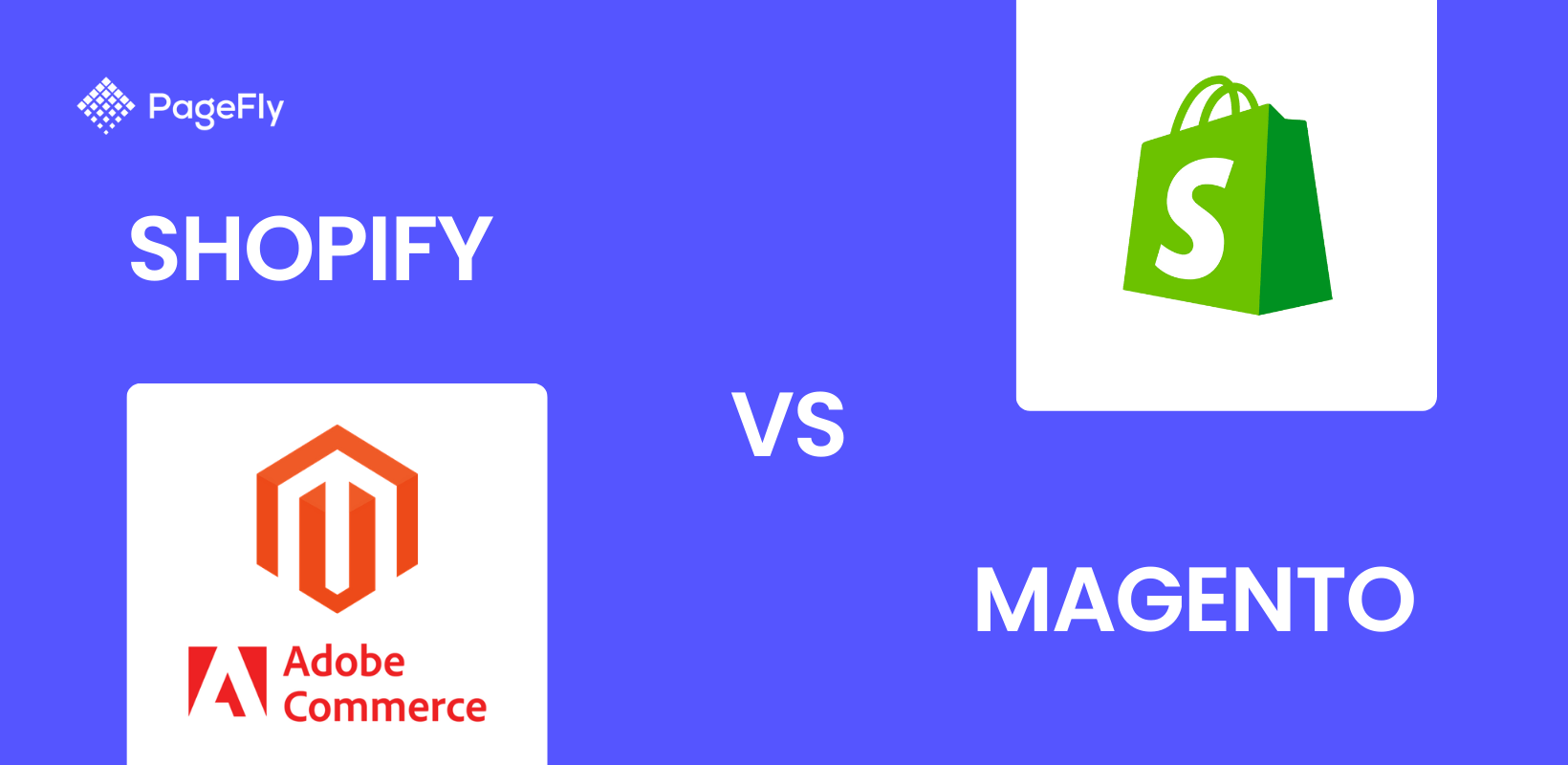


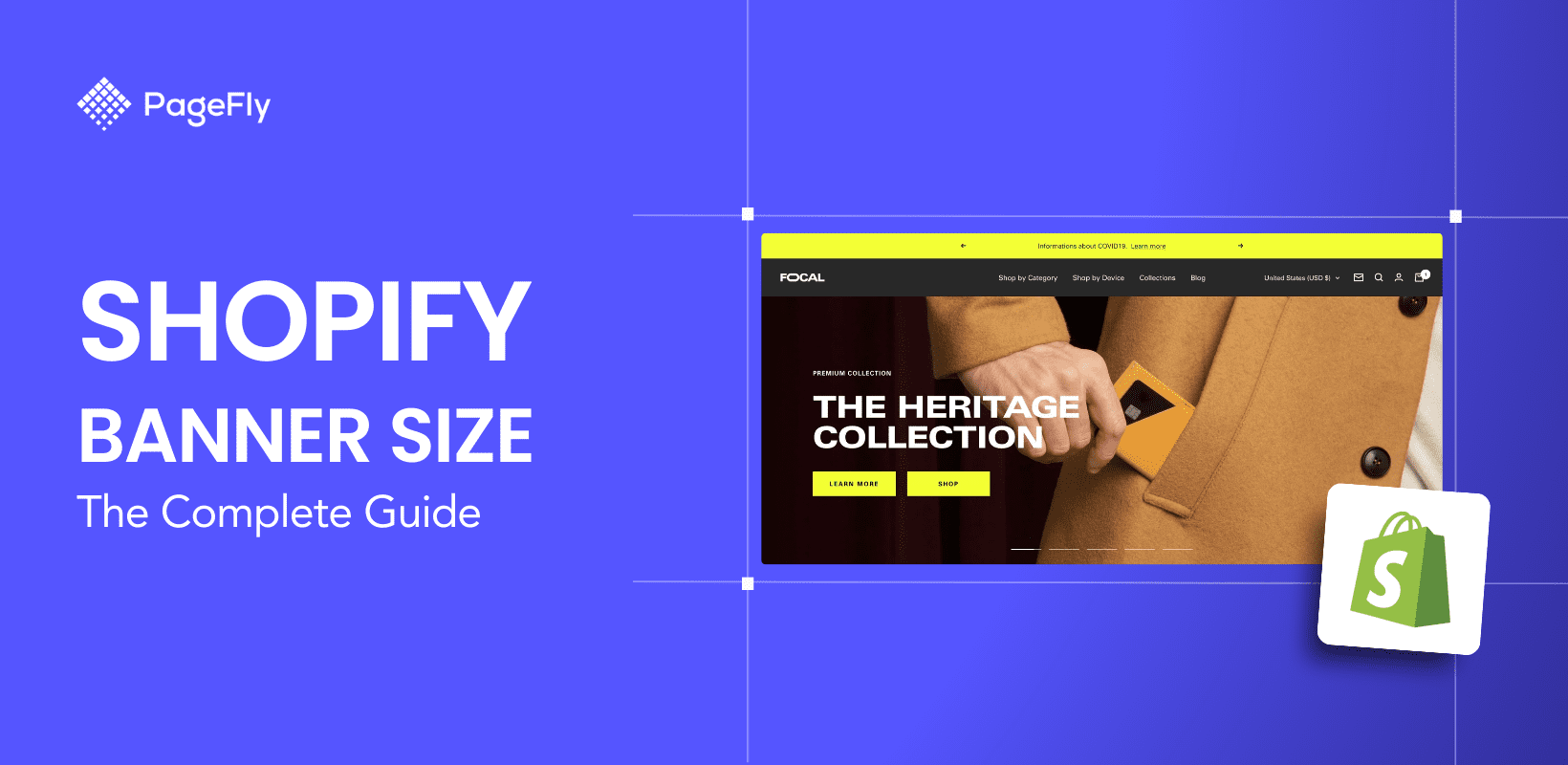
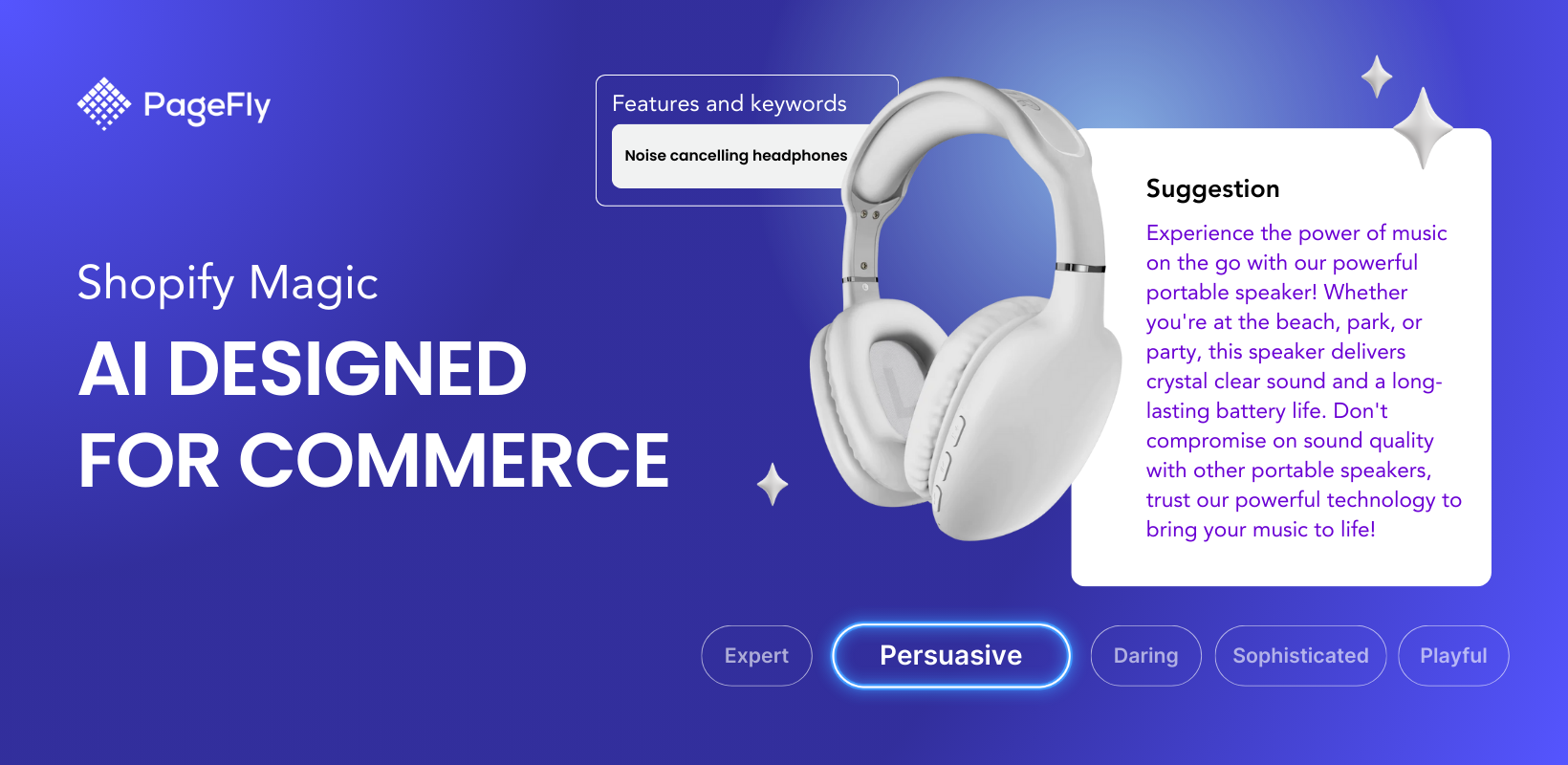

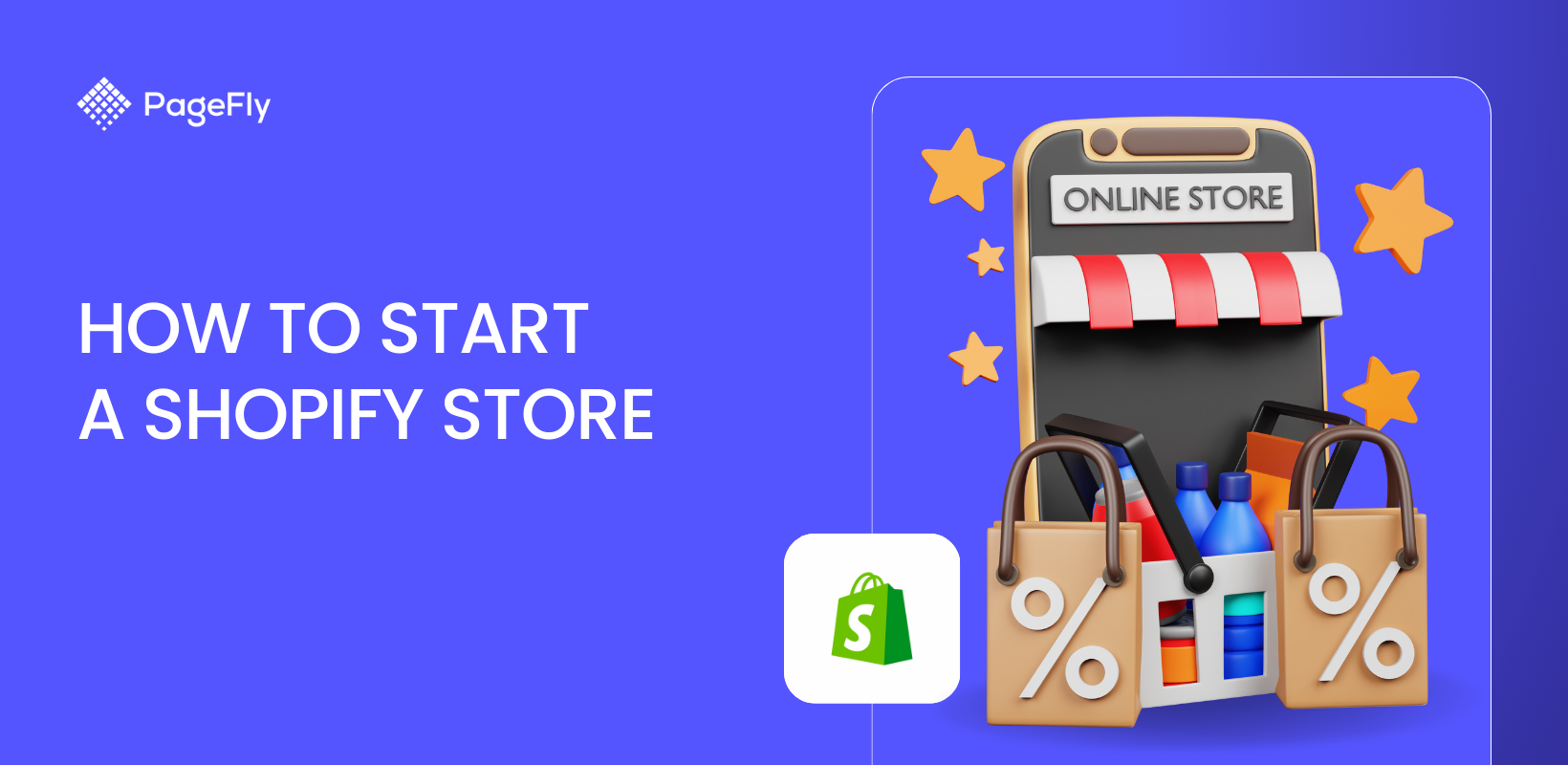
![27 Best Shopify General Stores + Complete Strategy Guide [2025]](http://pagefly.io/cdn/shop/articles/Best_Shopify_General_Stores_2f9d09f2-7c38-4da9-a495-e9f4898ddd68.jpg?v=1757271936&width=1640)

